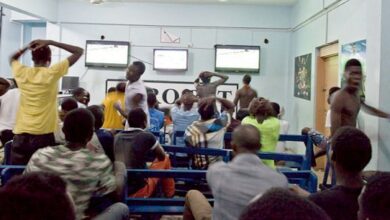Read full responses of suspended CJ to petitions for her removal

Chief Justice Gertrude Araba Esaaba Sackey Torkornoo has firmly responded to two separate petitions seeking her removal from office, describing the claims as baseless and lacking any constitutional merit.
The first petition, filed by a group called Shining Stars of Ghana, accused the Chief Justice of breaching Article 144 of the Constitution by recommending the appointment of five judges to the Supreme Court. The petitioners argued that this constituted “incompetence” and a failure to uphold judicial standards.
However, Chief Justice Torkornoo responded clearly, stating: “This very issue has already been addressed through the proper constitutional channels and was dismissed by the President, in consultation with the Council of State. No provision of the Constitution was breached.”
Citing the 2016 Supreme Court decision in the Ghana Bar Association v Attorney-General case, she explained that the President is not bound by advisory opinions from the Judicial Council or the Council of State, reinforcing that the established process was not violated.
She further added, “To try me again on the same facts already reviewed and ruled upon is contrary to the legal doctrine of res judicata. The matter should rest where it was concluded.”
The second petition, brought forward by legal practitioner Ayamga Yakubu Akolgo, stemmed from a courtroom incident in November 2023. Yakubu alleged he was treated discourteously by the Chief Justice during a hearing, resulting in his removal from the courtroom and misrepresentation in media reports.
Responding to this, the Chief Justice acknowledged the unfortunate courtroom experience but maintained her position:“If the Petitioner had a bad experience in court, I do not hesitate to apologize. But the record does not show any act of misconduct or incompetence that meets the threshold for removal under Article 146 of the Constitution.”
She also emphasized that decisions during Supreme Court hearings are collective and not personal: “The presiding judge is not the court. Judicial decisions and directions are made collectively by all justices present.”
On the matter of court records, she clarified that judges are not responsible for how records are managed or for responding to registry search requests: “No judge, including the Chief Justice, is involved in the preparation or answering of registry searches. That is the responsibility of court staff.”
Both responses, addressed to President John Mahama, underline the Chief Justice’s stance that the petitions are either repetitive, misdirected, or constitutionally unfounded.
She concluded by urging that matters of judicial accountability be approached through proper legal procedures, not personal grievances or misinterpretations of courtroom conduct.




